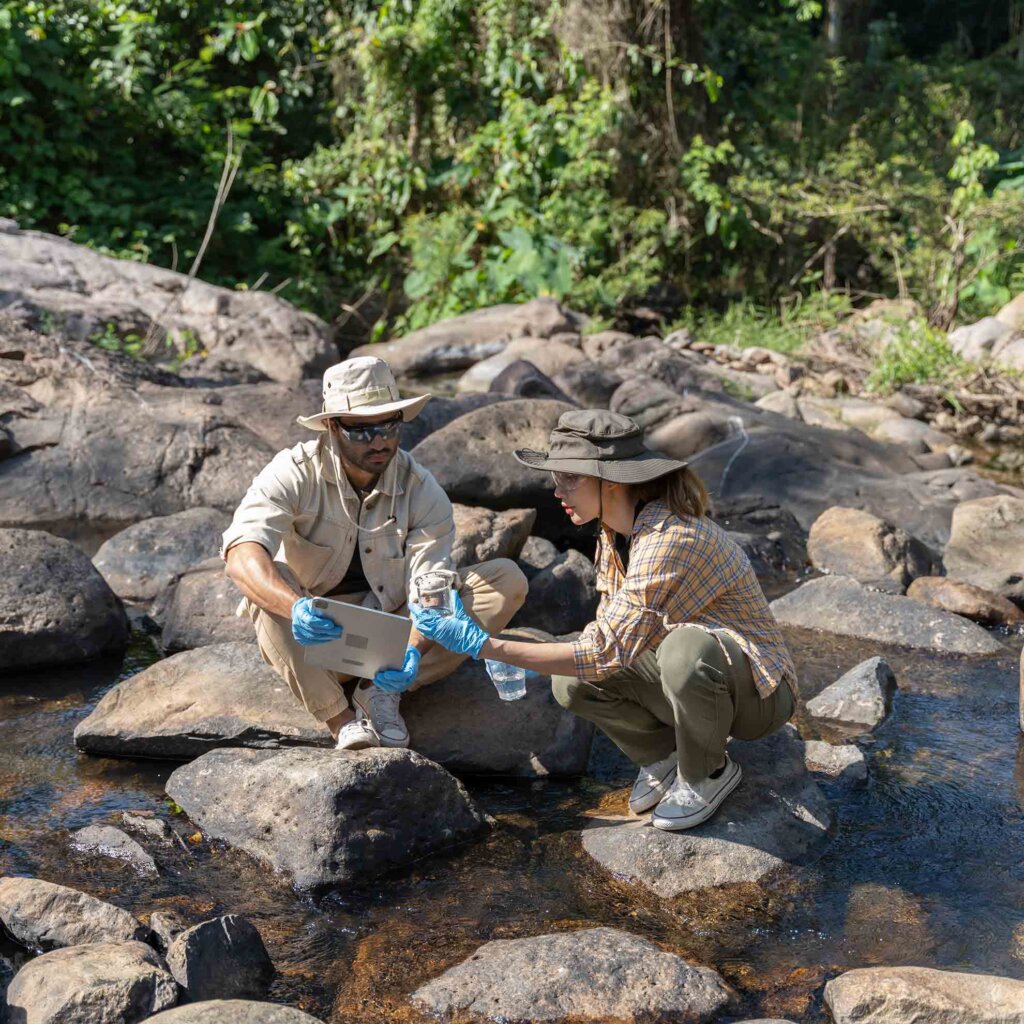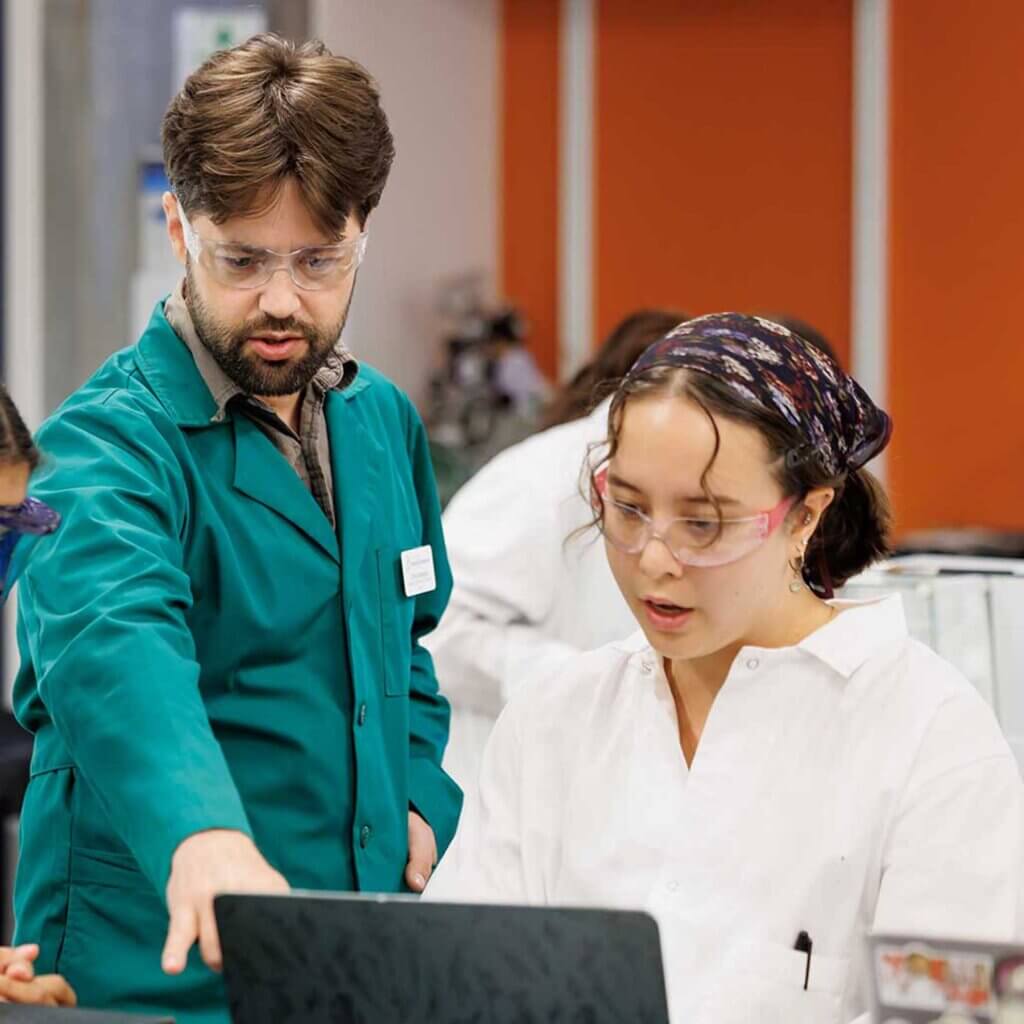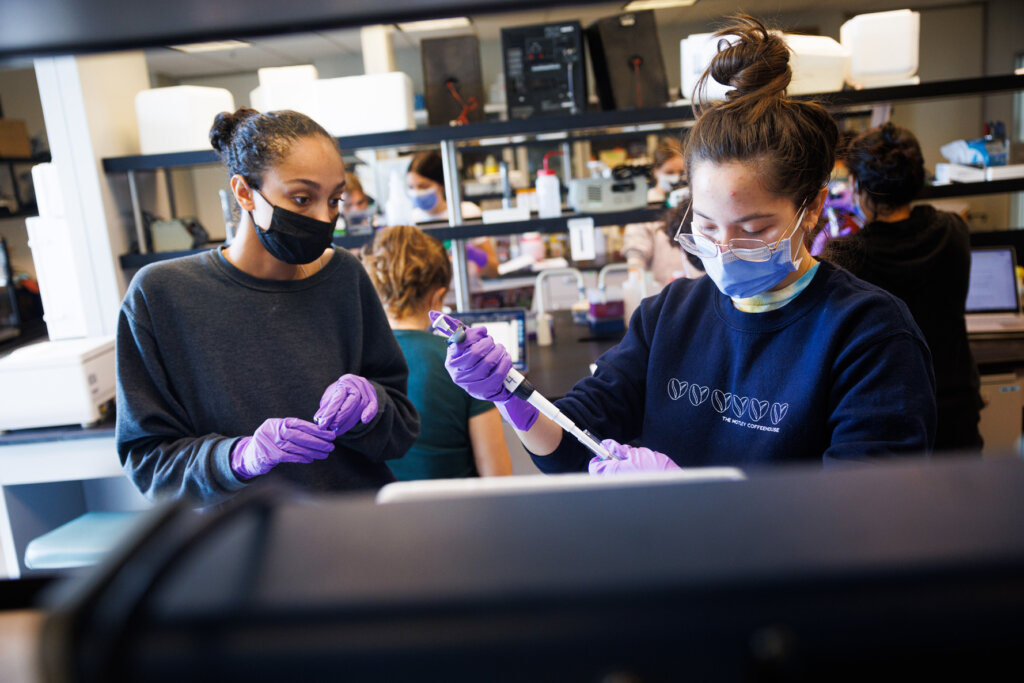How to Apply to Research Groups
Find a Lab
Get Involved
- Most undergraduate research in science happens in partnership with a faculty mentor at the Department of Natural Sciences (DNS).
- Many students work on projects related to a faculty members’ ongoing work.
- Explore the Faculty Research Interests page for research topics to choose from in various scientific fields.
- Each professor runs their lab differently depending on their projects and preferences. The best way to find out more is to ask the professor.
- You can also consult the Research Opportunities book in the DNS Office.

“Research experience feels really daunting, so the fact that Scripps’ Department of Natural Sciences has opportunities where you can just email a professor and ask, ‘Hey, can I join your lab?’ is huge.”
Jana Gaskin SC ’25
Chemistry and Dance major

Research Groups FAQs
Learn More
Often either wet lab or computational work while being mentored by professors and senior lab students.
This will vary based on the group and the type of research that they pursue. Many research groups frequently take students with no research experience! Your best option is to identify groups that do research that you find interesting and then to contact the faculty leader. You can discuss whether you would be a good fit at your current experience level. You can see a list of faculty (and the experience/coursework requirements to join their labs) here.
Each professor has control over how their research group operates (including how to admit students into their group, whether they will take first-year students, etc.). Since every lab does different research, there may be specific experiences or coursework that are needed before joining. This may make it more or less likely to be suitable for a first-year student. Learn more about current faculty research groups.
You will want a faculty mentor who does research you find interesting and can provide a training experience that matches your interests.
To identify a faculty mentor, you can see a list of active research groups here.
If you know the faculty member from a class or experience, it is good to ask them if they would be willing to meet one on one.
If you do not know the faculty member, email is a good start!
Either way, before you contact faculty, take the time to learn about their research and be able to articulate why you are interested in their lab. You are asking the faculty member to invest their time in meeting with you. You can do the same by reading up on their work before you reach out. Ideally, keep your email short and to the point (it makes it easier to digest!), and request to meet with the faculty to learn more.
Natural Sciences Research I and II are a series of classes that offer ¼ academic credit for students doing research in the lab. Note that to do research for credit, you will want to discuss this with your faculty mentor before the term starts. You can learn more about research for credit here.
If you know you are interested in a lab, you should reach out now! Every faculty member runs their lab differently (often with different deadlines). You give yourself the best chance possible by reaching out earlier rather than later.
Note that for summer research applications, you will want to discuss with your faculty mentor well before the application deadline.
Summer funding often comes from one of three sources.
The Department of Natural Sciences funds many students (you can go here to learn about summer funding through DNS). This is the most common mechanism for summer funding for students in DNS.
Some faculty have external funding from private or government sources which may be available to fund summer students. To learn more, you can talk with individual faculty members.
Each of our host colleges has some additional funding available outside of DNS. You can ask your career office about what funding is available for summer research support aside from DNS funding.
Every faculty member can choose lab members based on the needs of their research program. Some faculty members do sometimes take students from outside of the DNS. The only way to find out is to ask!
Once per semester, we will ask faculty to update their status on whether they are open to taking new student research assistants.
Once you have a faculty mentor, you can pursue research either for academic credit (during the school year), as a paid research assistant (most often during the summer), or as part of a senior thesis (can be either during the summer or during the school year).
If you wish to participate in research during the academic year, you must enroll in a Natural Science Research class. You must have a faculty mentor before enrolling in this class. Learn more about Natural Science Research classes.
If you wish to participate in research during the summer, you will need to secure funding. DNS offers summer research fellowships, and there are numerous college-sponsored fellowships. Some faculty also offer their own fellowships through grants. You must have a faculty mentor before applying for funding for summer research. We recommend discussing with your faculty mentor how best to secure funding. Learn more about summer research fellowships.
If you wish to pursue a senior thesis as part of your research, you can find information here.



